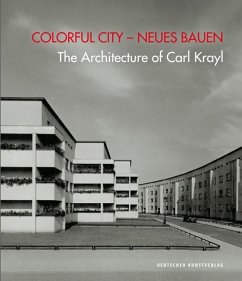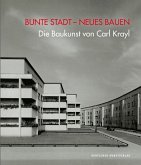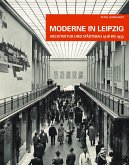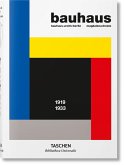This is the first monograph on the architect Carl Krayl (1890-1947). He belonged, as did the founder of the Bauhaus school Walter Gropius and Hans Scharoun, to a small but prominent circle of German architects who were involved in all phases of High Modernism. In the Arbeitsrat für Kunst (Work Council for Art) and the Gläserne Kette (Glass Chain), he contributed to the utopian, enthusiastic new dawn of the postwar avant-garde. In 1921 Krayl followed Bruno Taut, who had just been appointed head of the building and planning authority, to Magdeburg and distinguished himself with Expressionist designs; as the leading mind behind the "Colorful Magdeburg" campaign, his painted building facades caused a sensation at the same time. As of 1923, Krayl then turned to a functional style, and as a member of the Der Ring architects' association, became a proponent of Neues Bauen (New Building) with a reputation even beyond the region. Magdeburg's success in reinventing itself as a city of the modern movement from 1921 onward and becoming a role model for other municipalities can be attributed substantially to this ambitious and adaptable architect. In the book, essays by Ute Maasberg, Wolfgang Pehnt, and Regina Prinz situate Carl Krayl's specific work within the architectural history of the beginning of the 20th century. Brief texts shed light on a representative selection of his architectural works, and a list of his works is made available to a wide audience for the time. The 270 images illustrate not only Krayl's buildings, but also his plans, drawings, and other previously unpublished materials.








